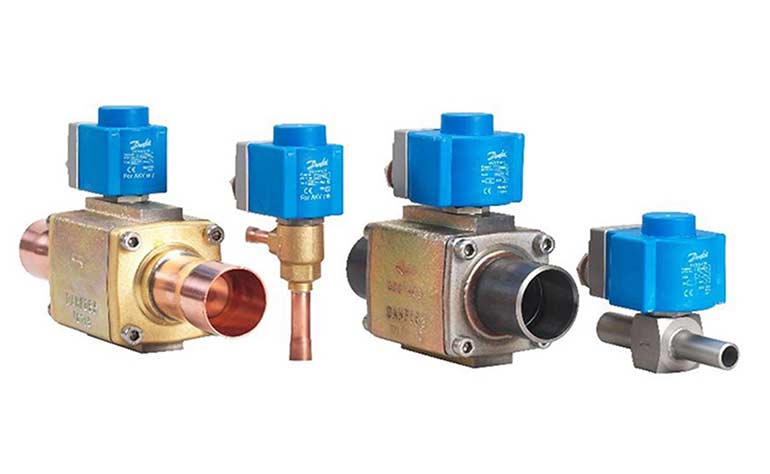Weiss Technik approves Danfoss valve with low temperature R469A
29th July 2021
GERMANY: Environmental test chamber manufacturer Weiss Technik has proven the long-term compatibility of Danfoss AKV expansion valves with its newly developed cryogenic refrigerant R469A.
The German manufacturer reports that it has successfully tested Danfoss AKV electronic expansion valves for use in environmental test chambers. Weiss tested the durability of the valves under sustained load and their resistance during operation with R469A, the refrigerant it developed as a replacement for R23 in very low temperature applications.
Engineers at Weiss Technik saw potential for the AKV expansion valves in its environmental test chambers, in particular the valve’s long service life of 50 million switching cycles. The valves also enable fast and accurate temperature changes and and rapid changes in flow rate. Also, as the valve closes automatically when there is no power, a separate safety shut-off valve is unnecessary.
Weiss Technik initially conducted field trials on powerful units with cooling speeds of up to 25K/min. No valve-related failures occurred even after long run times.
Subsequent bench tests sought to establish whether the valves would meet the requirements of Weiss Technik’s climate chambers. The main requirements were: controllability with an accuracy of < ± 0.1K, quick adjustment after temperature changes; feasibility of temperature ramps, jumps and constant temperatures within tight tolerances; high number of switching cycles.
After an initial 12 million switching cycles without defects, 120 million switching cycles were subsequently tested.
The tests were carried out in systems of all sizes, from small units with a volume of 100 l to walk-in test cells with a volume of 21m3. The temperatures ranged from -85 °C to +200 °C.
According to Weiss Technik, these loads had no effect on the valves. They showed no wear and maintained all parameters over the entire test period.
Related stories:
Low GWP option for low temp R23 – 7 June 2019
GERMANY: An environmental test chamber manufacturer has announced the development of a lower GWP alternative for R23, a specialist refrigerant used in low temperature refrigeration. Read more…







